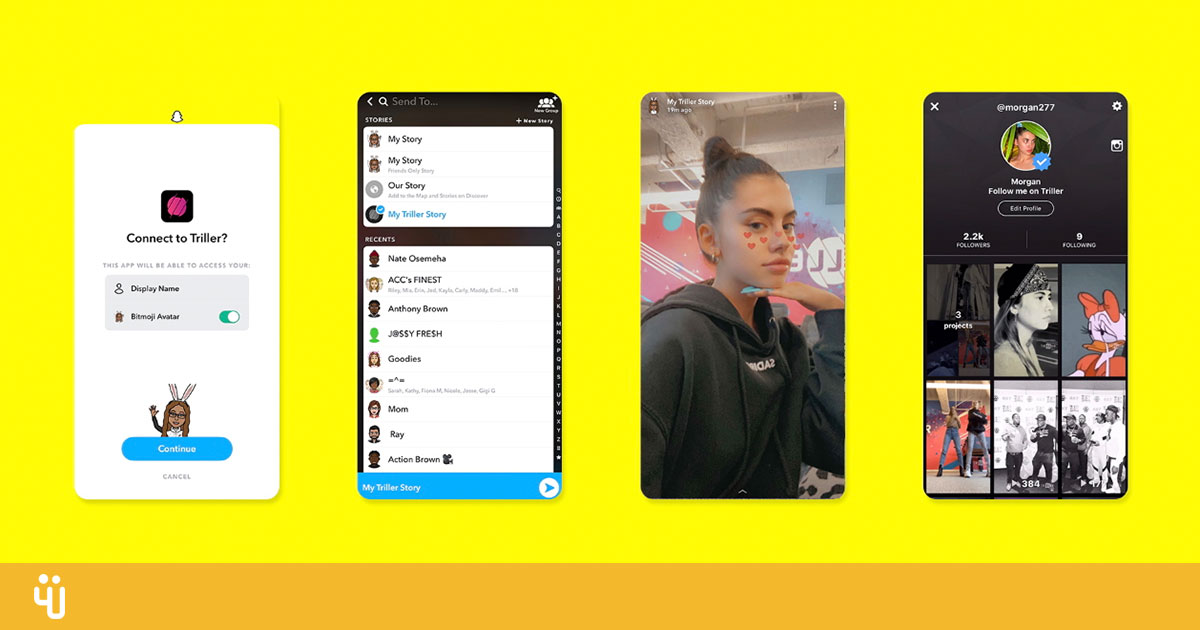


#Snap creative kit snapchat tiktok theverge software
“Then there's a question: Do I just put my name on this so I can get streaming royalties? Or do I admit the machine made it, in which case I can't stop anyone from using it however they want?”Ībbott said he plans to appeal the board’s decision in federal court in Washington D.C.ĭespite its seemingly inhospitable stance toward AI-created artwork, the Copyright Office’s ruling shouldn’t be a major issue for artists using AI as a collaboration tool, according to Ahmed Elgammal, founder of AI software firm Playform. “It's going to be a real issue when someone has AI that makes a song that is genuinely commercially valuable-that's playing on the radio, that people want to listen to,” Abbott noted. “He has done neither.”Ībbott contends that Thaler’s case is different from the monkey ruling cited by the Copyright Board, given that “no one is trying to have a machine own a copyright.” Rather, Thaler wants to own the copyright for artwork created solely by a machine that he built, Abbott said. “Thaler must either provide evidence that the work is the product of human authorship or convince the Office to depart from a century of copyright ,” the Copyright Board wrote in its Feb. This is really an area where the United States should be a global leader in promoting AI development.” “That sort of policy is going to stand in the way of people developing machines that are going to make socially-valuable creative works: songs, movies, music. “The United States Copyright Office has a policy of not allowing that sort of work to be protected,” Abbott told dot.LA. Abbott, a partner at L.A.-based law firm Brown, Neri, Smith & Khan, noted that AI-produced artwork is creating significant commercial value, such as an AI-authored painting that sold for $432,000 at auction in 2018. The case arrives as artists are increasingly using AI to help generate artwork, including works produced by autonomous machines. Thaler listed the program as the artwork’s author and sought a copyright as the machine’s owner. Thaler, the founder of the Missouri-based AI firm Imagination Engines, tried to copyright “A Recent Entrance to Paradise,” a picture that was autonomously created by Creativity Machine’s algorithm without any human help. Copyright Office refused to grant a copyright this month for an image made by an artificial intelligence program called Creativity Machine-ruling that “human authorship is a prerequisite to copyright protection.” The case will now head to federal court as the AI program’s owner, Stephen Thaler, plans to file an appeal, according to Ryan Abbott, a Los Angeles-based attorney representing Thaler.

But when it comes to the realm of intellectual property law, artwork made by machines can’t receive copyright protection, a federal agency has decided.

Sign up for dot.LA’s daily newsletter for the latest news on Southern California’s tech, startup and venture capital scene.Ĭomputers can now write poems, paint portraits and produce music better than many humans.


 0 kommentar(er)
0 kommentar(er)
